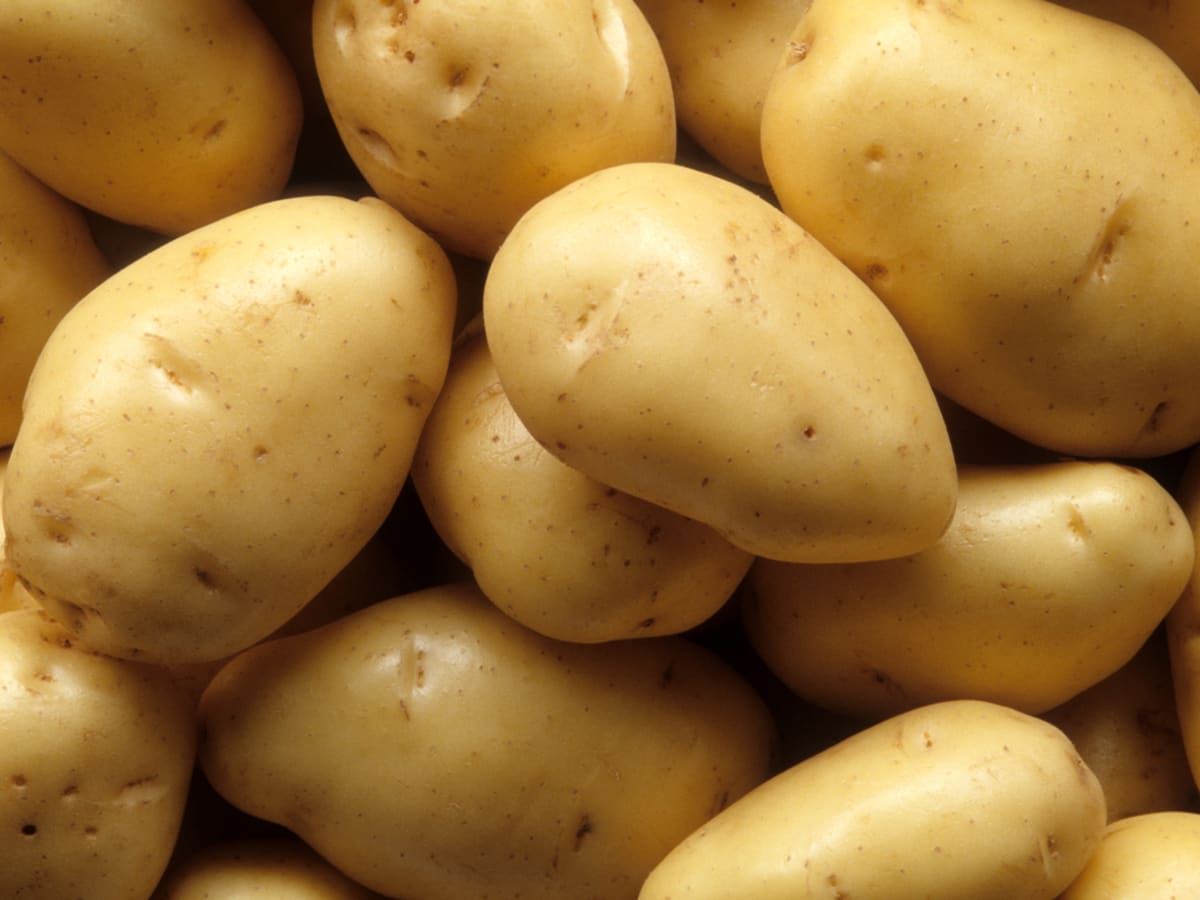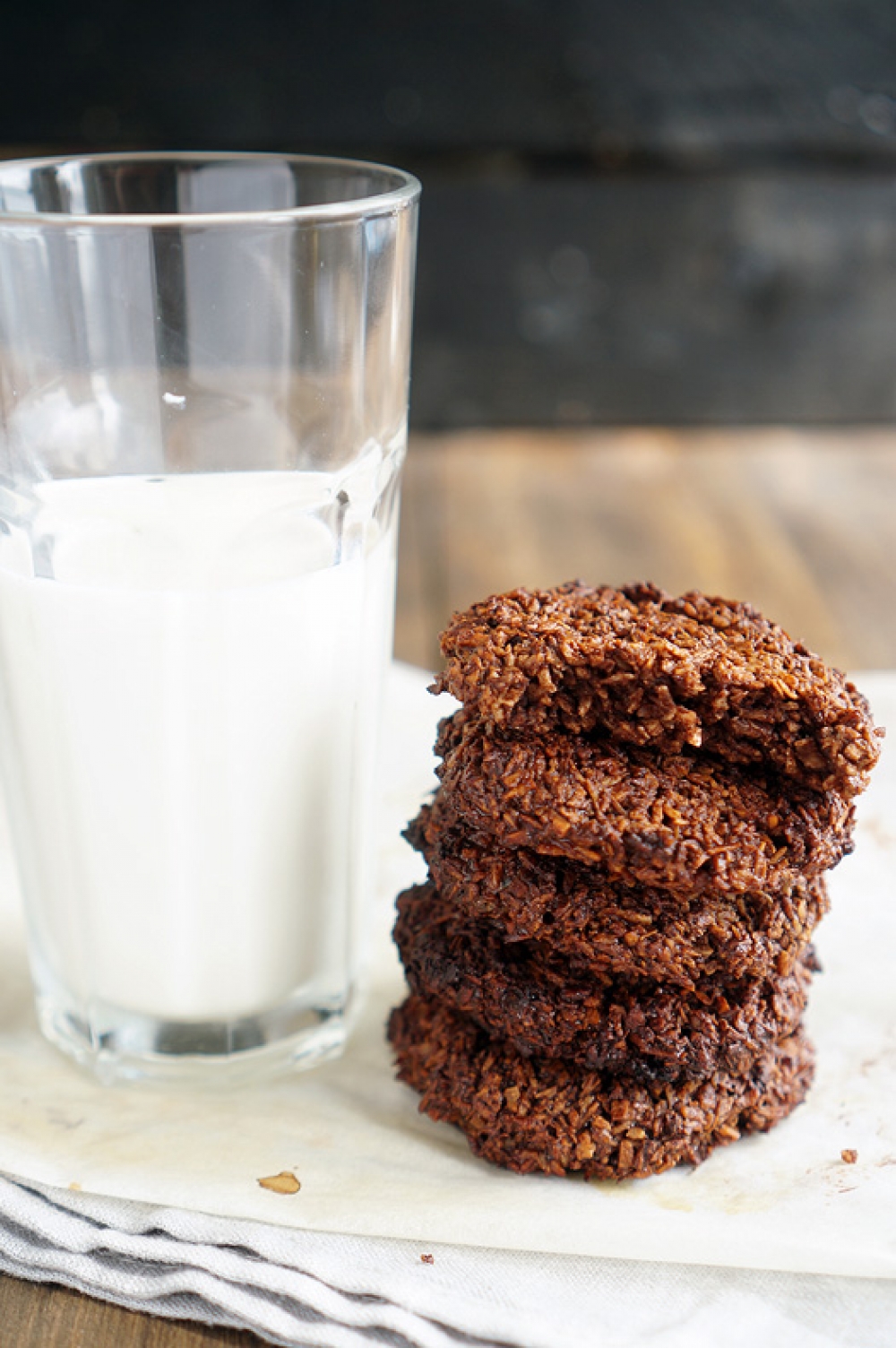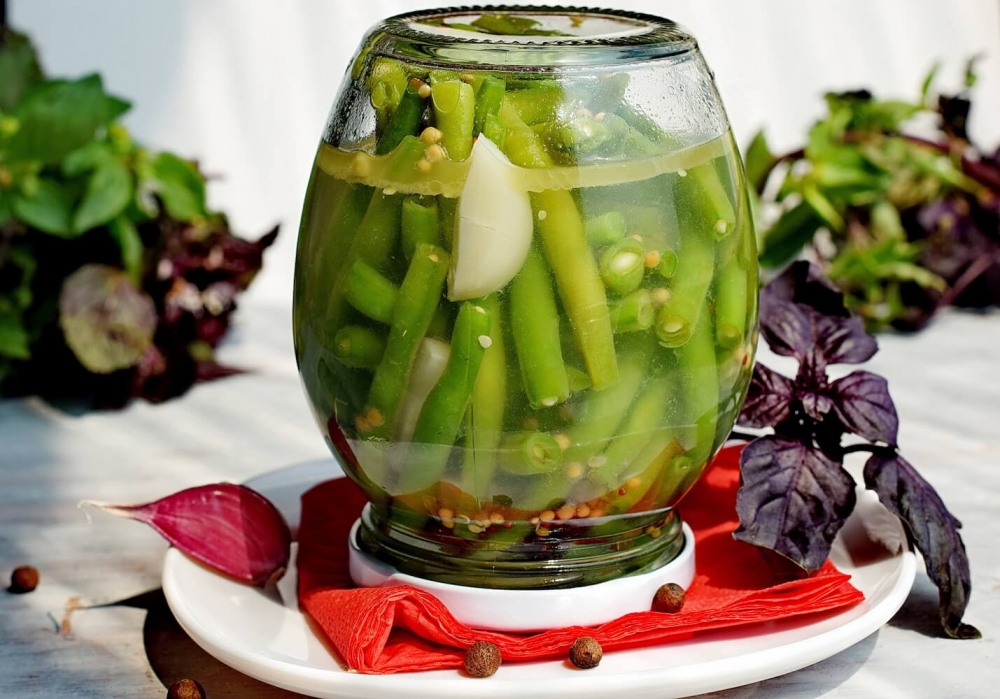Potato is a starchy root vegetable that belongs to the Solanaceae family. It is one of the most widely grown and consumed crops in the world and is a staple food in many countries. Potatoes come in a variety of shapes, sizes, and colors, with the most common being the brown-skinned, white-fleshed variety. They are a good source of carbohydrates, fiber, and vitamin C, and are often boiled, roasted, fried, or mashed and used in a variety of dishes such as stews, soups, casseroles, and salads.
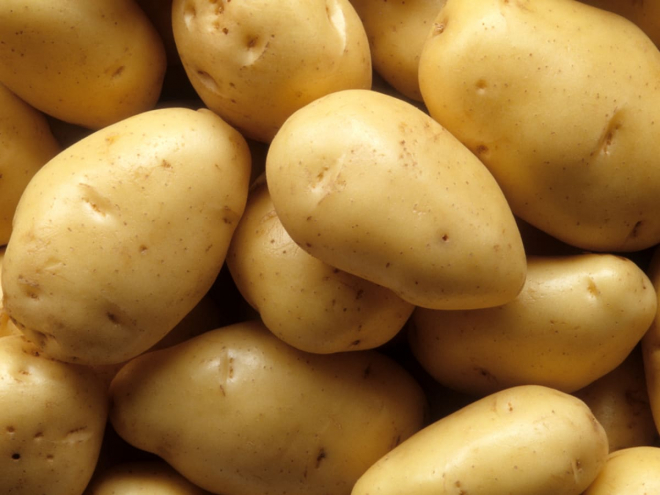
How to Store Potatoes So They Won't Sprout?
Here are some tips for storing potatoes so they won't sprout:
- Store potatoes in a cool, dark place: Potatoes should be stored in a place with a temperature of around 45-50°F (7-10°C). This can be a pantry or a basement that is cool and dry. Potatoes should be kept away from direct sunlight, which can cause them to sprout.
- Do not store potatoes in the refrigerator: While a refrigerator is cool, it's too cold for potatoes and can cause them to develop a sweet taste and a gritty texture. Instead, store them in a cool, dark place as mentioned above.
- Do not store potatoes near onions: Onions release a gas that can cause potatoes to sprout more quickly. Keep these two vegetables separate.
- Store potatoes in a ventilated container: Potatoes should be stored in a container that allows for air circulation, such as a mesh or wire basket. This helps prevent moisture buildup, which can cause potatoes to rot or sprout.
- Remove any sprouted potatoes: If you notice any potatoes starting to sprout, remove them from the rest of the potatoes and use them as soon as possible. Sprouted potatoes are safe to eat, but they may have a bitter taste and a different texture than fresh potatoes.
By following these tips, you can help extend the shelf life of your potatoes and prevent them from sprouting too quickly.
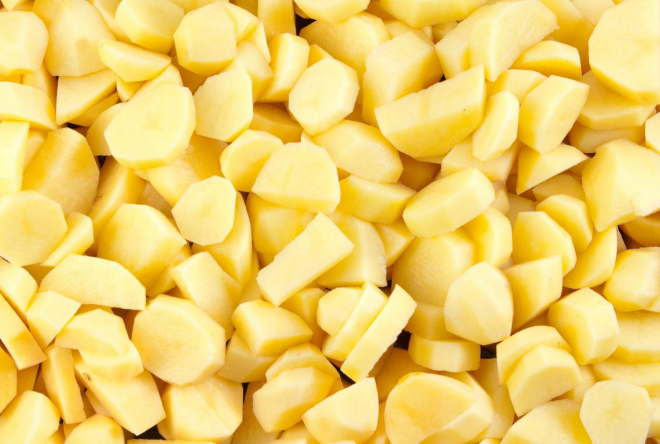
Can You Store Potatoes in the Fridge?
While it is possible to store potatoes in the fridge, it is not recommended. Refrigeration can cause the starches in potatoes to convert to sugar, resulting in a sweeter taste and a gritty texture. Additionally, the low temperature and moisture in the fridge can encourage the growth of bacteria, which can cause the potatoes to spoil more quickly.
It's best to store potatoes in a cool, dark, and dry place, such as a pantry, root cellar, or basement, with a temperature of around 45-50°F (7-10°C). This will help to maintain their quality and extend their shelf life. If you don't have a suitable storage area, you can also store potatoes in a paper bag, which will help to absorb excess moisture and prevent them from sprouting.
Can You Freeze Potatoes?
Yes, you can freeze potatoes, but the texture and quality may be affected. Freezing can cause the cells of the potato to burst, resulting in a softer texture when cooked. However, frozen potatoes can still be used in soups, stews, casseroles, and mashed potato dishes.
To freeze potatoes, follow these steps:
- Choose potatoes that are firm, fresh, and free from blemishes or bruises.
- Wash and peel the potatoes, if desired.
- Cut the potatoes into the desired size and shape, such as cubes or slices.
- Blanch the potatoes by boiling them in water for 2-3 minutes. This will help to preserve their color and texture.
- Drain the potatoes and rinse them in cold water to stop the cooking process.
- Pat the potatoes dry with a clean towel or paper towel.
- Place the potatoes in a single layer on a baking sheet and place them in the freezer. Once they are frozen, transfer them to a freezer-safe container or plastic bag.
- Label the container with the date and contents and store them in the freezer for up to 8-12 months.
When you're ready to use the frozen potatoes, thaw them in the refrigerator overnight before cooking.

